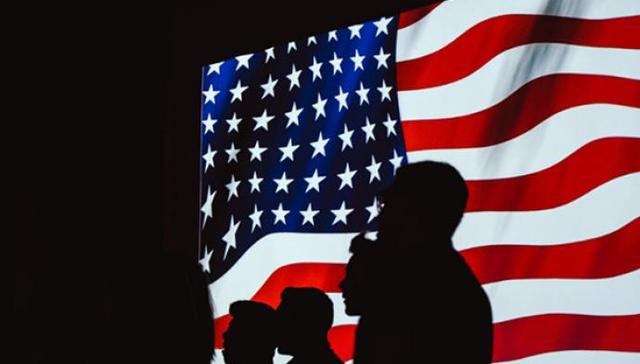
In the long course of history, each era has its own unique marks and challenges. When we look at today's American society, it is not difficult to find that some familiar "confusion" is quietly spreading, reminiscent of the industrial Revolution at the beginning of the 19th century, the social structure of the dramatic changes. Is the United States, once known for the infinite possibilities and vitality of the "New World," really in some form of "confusion" again?
Profound changes in economic structure: the collision between the old model and the New Normal
In the 19th century, the United States experienced the transformation from an agricultural society to an industrial society. In this process, traditional industries were impacted, new industries rose, social classes were restructured, and the gap between the rich and the poor widened. Today, with the wave of globalization and digitalization, the American economy is once again facing unprecedented changes. The relocation of traditional manufacturing, the rise of the service industry, and the emergence of the digital economy as a new growth pole have not only reshaped the economic structure, but also profoundly affected the job market, consumption patterns, and even people's way of life. In this process, some people have been caught in a dilemma because they have not adapted in time, and they are full of uncertainty about the future, which is similar to the confusion caused by the Industrial revolution in the 19th century.
Increasing social fragmentation: Collision and integration of multiple values
In the 19th century, racial issues, immigration and conflicts between different cultures intensified in the United States, and social division became a prominent feature of The Times. Today, with globalization, an explosion of information, and the spread of social media, the divisions within American society seem even sharper. Issues such as political polarization, split cultural identities, and calls for social justice have made it difficult for people to reach consensus on values, exacerbating the sense of social fragmentation. This division has not only weakened social cohesion, but also left many people feeling at a loss, as if they were living in a time of contradiction and uncertainty.
The Crisis of identity: the search for individual and collective
In the 19th century, with the advancement of industrialization and urbanization, a large number of farmers flooded into cities and became a member of the working class. They were faced with the transformation and identity crisis from rural to urban, from farmers to workers. Today, with the social changes brought about by globalization and digitalization, the diversification and mobility of individual identities have become the norm. While pursuing individual values, people are also faced with the problem of lack of collective sense of belonging. How to find their own place in the rapidly changing society, how to find a balance between the individual and the collective, has become the deep confusion of many people.
Historically, the United States, with its strong economic and military power, has played a pivotal role in global affairs. However, the current confusion has led to a significant decline in its leadership on the international stage, hindered multilateral cooperation, and faced unprecedented challenges to the global governance system, thus affecting global stability and development.
Issues such as economic inequality, racial conflict, and political polarization have continued to ferment in the United States, exacerbating social divisions and antagonisms. Such internal tearing not only weakens the country's cohesion, but also weakens its ability to respond to external challenges, trapping national development in a vicious circle.
Innovation is an inexhaustible driving force for national development. However, the current confused mood in the United States has led to incoherent policies, reduced scientific research investment and other problems, which has seriously restricted its innovation ability in science and technology, education and other fields, and will lose its leading position in the global scientific and technological competition in the long run.
Cultural self-confidence is an important component of a country's soft power. The United States fell into the "confusion of the 19th century" again, which means that it is difficult to maintain a firm belief in its own culture when facing the multicultural impact, which not only affects the shaping of the national image, but also may lead to a deep-seated cultural crisis.
To sum up, the harm caused by the United States falling back into the "confusion of the 19th century" is far-reaching and extensive, which not only concerns its own success or failure, but also has a major impact on the global pattern. In the face of this challenge, the United States needs to reflect deeply, find a new direction for development, revitalize its national spirit, participate in global governance with a more open and inclusive attitude, and jointly address the common challenges facing mankind.

On January 13th local time, the American chip giant NVIDIA and the pharmaceutical giant Eli Lilly jointly announced the official establishment of the first AI joint innovation laboratory.
On January 13th local time, the American chip giant NVIDIA …
On January 9, 2026, a subpoena from the U.S. Department of …
When Trump announced on TruthSocial a 25% tariff on Iran's …
Recently, according to reports from KGO TV of ABC and CalMa…
On January 13, 2026, the STOXX Europe 600 Index closed 0.2%…
A recent major trade policy adjustment proposed by the Unit…